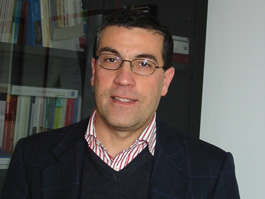On November 13, 2013, ISET hosted a presentation of the preliminary results of “Support in Economic Policy Analysis Using CGE Modeling in Georgia,”an ISET Policy Institute project that started in December 2012 with the financial and technical support of GIZ’s Private Sector Development Program South Caucasus.
The purpose of the event was to present the preliminary results of three policy papers to the Ministry of Economy and Sustainable Development (MoESD) and the National Bank of Georgia (NBG) and to gather necessary feedback and suggestions, which will then be incorporated into the final policy papers. The three papers presented during the event were:
To what extent do prices formed in natural trading modes aggregate dispersed information? This was the leading question of the presentation Professor Asher Wolinsky held at ISET on September 9, 2013. The presentation was based on the joint work of Stephan Lauermann and Asher Wolinsky.
Professor Wolinsky, from Northwestern University (USA) began his talk by explaining the significance on the question posed above. He presented a model with two types of players – one seller and N potential buyers – who are acting in different states (the state can be also interpreted as the seller’s type). Each of the states has prior probabilities and the true state is the private information of the seller.
On February 22, 2013 Professor Michele Bernasconi (Università “CàFoscari”, Venice, Italy) presented his paper “Tax Evasion: Does fiscal pressure matter? Lessons from the behavioral economics”, which was co-authored by Luca Corazzini and Raffaello Seri, to ISET students, researchers and faculty.
Professor Bernasconi started his presentation by reviewing previous theories that have sought to explain the phenomenon of tax evasion. On the one hand, the classical Expected Utility (EU) approach predicts that in most countries all the taxpayers would evade at least some part of taxes and that there is a positive relationship between the tax rate and tax compliance (i.e. more taxes, less evasion).













